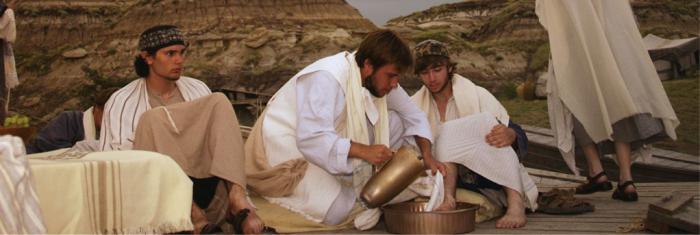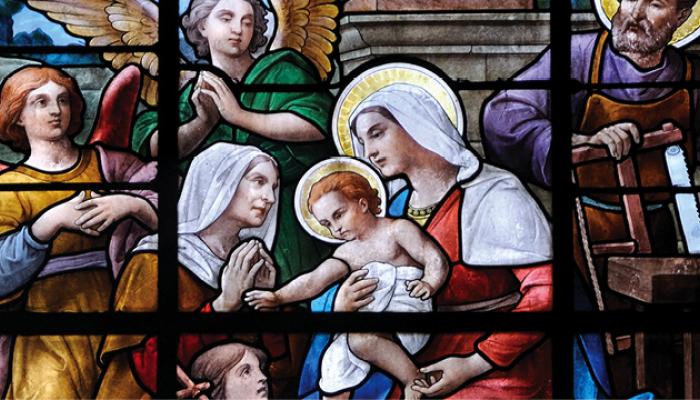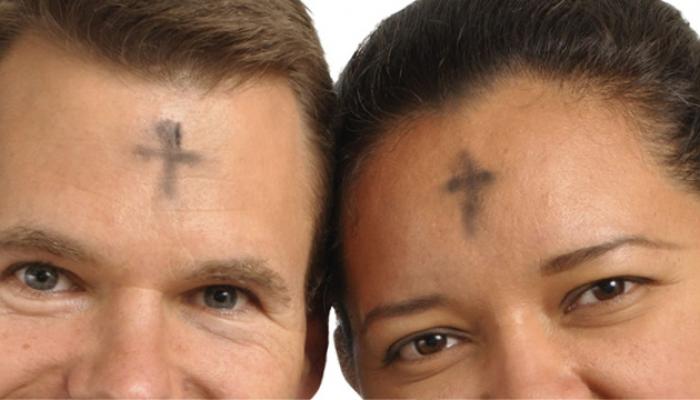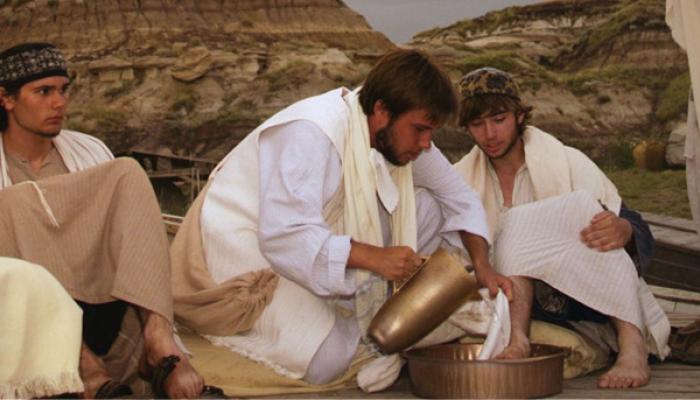
3.30 Cos’è il Triduo Pasquale, che ha inizio il Giovedì santo?
Gesù fu torturato, morì e risorse dai morti in tre giorni (“Triduum” in latino). Questo è il centro della fede cristiana. Il Giovedì Santo ricordiamo l’Ultima cena, l’ultimo pasto di Gesù con i suoi amici.
In questo giorno Gesù istituì l’Eucaristia, insieme al sacerdozio. Il Venerdì Santo ricordiamo la sofferenza e la morte di Gesù. Nella Veglia di Pasqua ricordiamo che Gesù è risuscitato dai morti.
What happened at the Last Supper?
Jesus washed the feet of his apostles on the evening before his death; he instituted the Eucharist and founded the priesthood of the new Covenant.
Jesus showed his consummate love in three ways: he washed his disciples’ feet and showed that he is among us as one who serves (cf. Lk 22:27). He symbolically anticipated his redeeming Passion by speaking these words over the gifts of bread and wine: “This is my body which is given for you. Do this in rememberance of me.” And likewise the chalice after supper, saying, “This chalice which is poured out for you is the new covenant in my blood.” (Lk 22:19f). In this way he instituted the holy Eucharist. When Jesus commanded the apostles,“Do this in remembrance of me” (1 Cor 11:24b), he made them priests of the new Covenant. [Youcat 99]
“Do this in memory of me” (Lk 22:19)... Did the Apostles who took part in the Last Supper understand the meaning of the words spoken by Christ? Perhaps not. Those words would only be fully clear at the end of the Sacred Triduum the time from Thursday evening to Sunday morning... At every celebration of the Eucharist, we are spiritually brought back to the paschal Triduum: to the events of the evening of Holy Thursday, to the Last Supper and to what followed it. [Pope John Paul II, Ecclesia de Eucharistia, n. 2-3]





